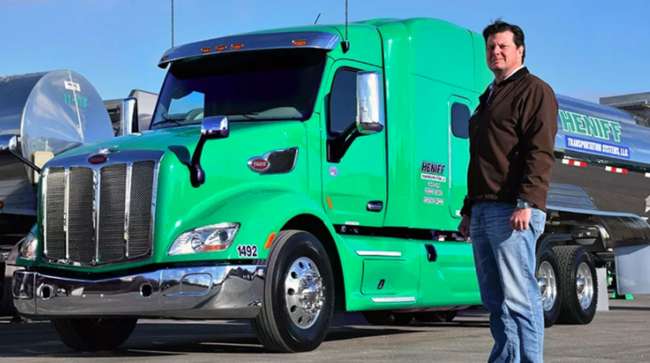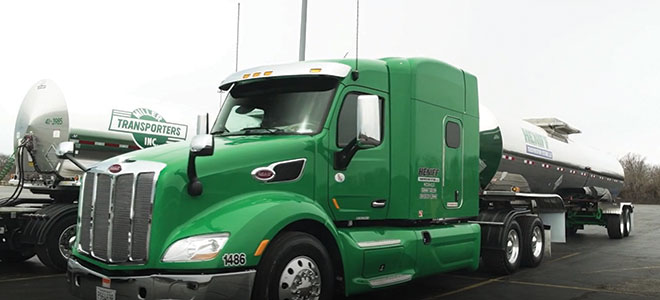Heniff Transportation Acquires Miller Transporters

In a move that could signal increased consolidation among tank truck fleets, the owner of Heniff Transportation Systems announced the purchase of Miller Transporters, along with Miller Intermodal Logistics Solutions and other affiliated companies.
Terms were not disclosed.
The combination of Heniff and Miller will create one of the largest liquid bulk chemical fleets in North America with coverage throughout the continental United States, Canada and Mexico, a network of 40 locations in 18 states and a fleet of 1,100 tractors and nearly 3,000 trailers, according to a statement issued by Heniff Holdco LLC, the parent of Heniff Transportation Systems, based in Oak Brook, Ill.
“This is a tremendous time for our drivers and employees,” said Bob Heniff, CEO of Heniff Transportation Systems. “We could not be more excited on the opportunities this will provide going forward.”
Miller Transporters ranks No. 9 on the Transport Topics list of largest for-hire carriers in the tank/bulk sector with annual revenue of $117.6 million. The company also generates about $30 million from freight brokerage and logistics services, and provides tank cleaning services in Lake Charles, La.; Memphis, Tenn.; and Richmond, Va.

(Heniff Transportation Systems)
The company was founded in 1942 by H.D. Miller and has been owned and operated by members of the Miller family ever since. Miller’s grandson, Lee, currently serves as president and will continue in that role, along with Steve Haskins as president of Miller Intermodal Logistic Services, Heniff said in an interview with Transport Topics.
“This is a great fit,” Heniff said in describing the transaction and pointing out that there is virtually no overlap between the companies in terms of customers or geographic coverage.
“These are two first-class operations,” Heniff said. “They have processes that we can’t wait to adopt, and we have some things, mainly in information technology, that we can contribute.”
The addition of Miller Intermodal Logistic Services, in particular, will enhance the company’s ability to haul chemicals in containers for export.
“I see that as a big growth area,” Heniff said.
The volume of chemicals produced in the United States is expected to grow rapidly in the next few years as major processing facilities are built along the Gulf Coast in response to plentiful supplies of cheap domestic natural gas.
Although Heniff and Miller will continue to operate separately, Heniff said combined annual revenue for the two businesses will be about $300 million.
Heniff said he expects to see more consolidation among tank truck fleets, in part, because many of the smaller companies in the business are owned by families that are looking for ways to convert their ownership into cash while preserving the operations for employees.
Heniff, whose father and grandfather were in the tank truck business, started his company in 1998 and has made a number of acquisitions over the years. The most recent purchase was EZ Alternative Transport in Nederland, Texas, in 2016. Heniff acquired Horizon Tank Lines in Wilmington, N.C., in 2015.
Dan Furth, president of the National Tank Truck Carriers, a trade association based in Arlington, Va., told Transport Topics that he expects to see more mergers.
“The tank truck industry is currently experiencing some of the best operating conditions in its history,” he noted, “so you’ll see a whole host of carriers looking and thinking about consolidation at the top of the market.”
Furth doesn’t see a lot of growth in capacity, however, due to constraints on the ability of companies to expand their fleets.
“I do not see expanded capacity,” he said, “but rather expanded profitability for existing businesses as the capacity constraints are fueling healthier economics for carriers.”

